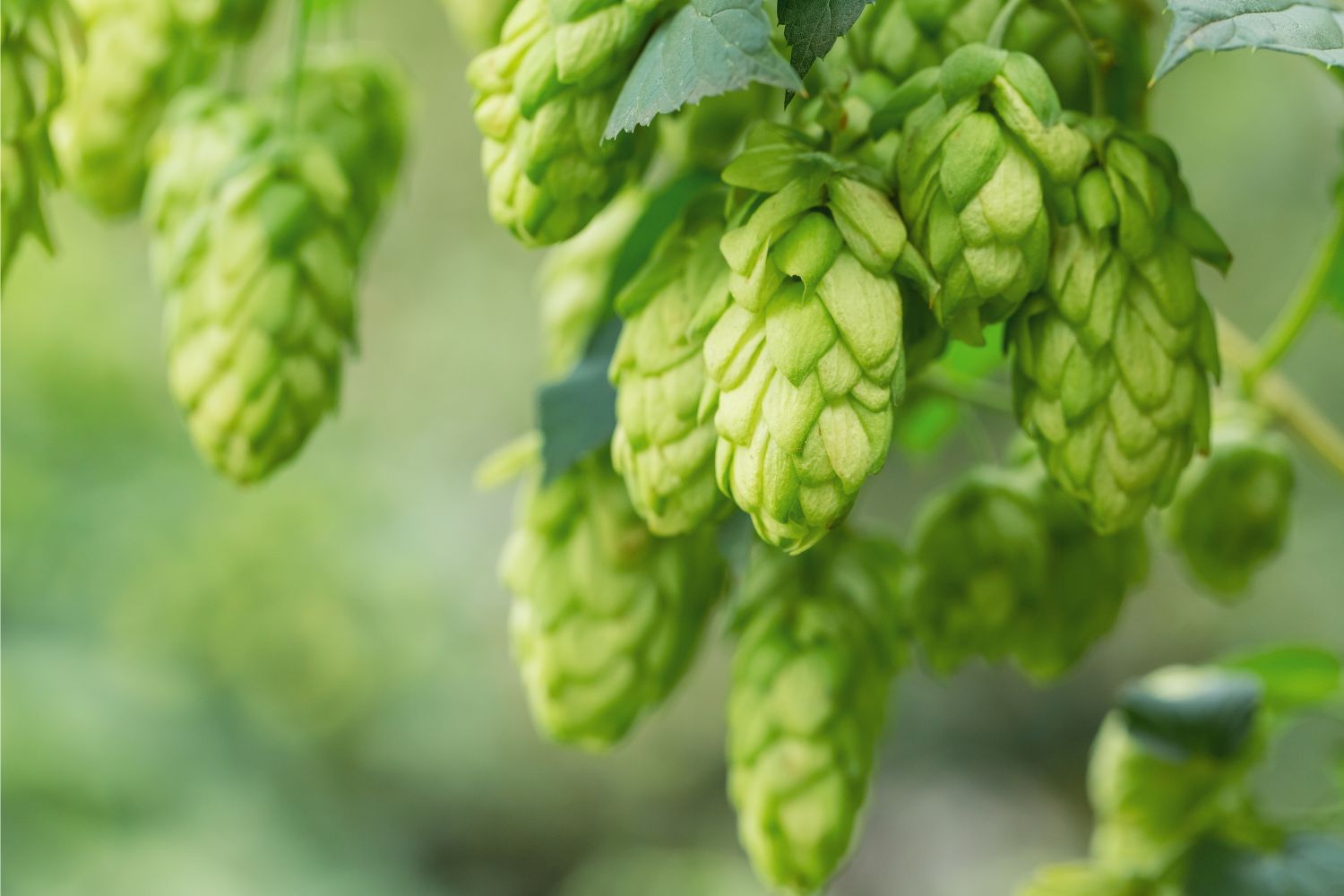Two PhD research projects are being created looking at how to develop sustainable approaches to British hop production.

The projects are being funded by Asahi UK and the Worshipful Company of Brewers, who have teamed up with the Royal Agricultural University (RAU) and the University of Warwick.
Despite the significance of hop farming to British heritage, climate change and the prevalence of disease has meant that hop production in the UK has declined substantially since its heyday in the 1800s. Then, it is believed, there were almost 3,000 hop growers, and more than 77,000 acres of hops, in the UK.
There are now just 45 hop growers, and only 2,000 acres of hops. The total acreage dedicated to growing hops used in traditional British beers has halved in size in the last decade.
“Going forward, we need to support British hop growers, and this includes developing approaches that make hop production more environmentally and economically sustainable,” said Professor Duncan Westbury, dean of land and property management at the RAU, who will be supervising the PhDs.
“As well as the problems caused by a changing climate, growing hops in the UK is now also more difficult due to the increasing incidence of fungal pathogens in the soil, particularly a disease called Verticillium wilt, which can significantly reduce yields.
“Hop growers currently do what they can to prevent disease, and this includes the use of chemicals and regular cultivation of the alleyways between the hop bines.
“However, these practices not only significantly impact biodiversity and soil health, they are also carbon intensive, meaning that, while they may support the short-term production of hops, they contribute to the long-term problem.”
The two PhDs, for which the RAU is now inviting applications, will look to develop sustainable approaches to enhance UK hop production by increasing resilience to disease, through the implementation of wildflower alleyways, and the use of biochar, a carbon-rich, charcoal-like material.
It is hoped that use of these methods could also lock-up more carbon in the soil, thereby helping growers to address the climate emergency, enabling the sector to progress towards its goal of net zero.
In a recent climate-related risk analysis of their business, Asahi UK, brewer of British beer brands including Fuller’s, Dark Star, and Meantime, found that hops were the highest areas of risk due to the adverse impacts of climate change, which is driving the crop’s vulnerability to disease.
Sam Goodenough, sustainability manager at Asahi UK, said: “With climate change comes high temperatures and also more rainfall, increasing the chances of droughts and flooding, which can lead to a decrease in crop yields.
“Hops are also particularly vulnerable to pests and disease, and the strain these changes in weather put on the crop further lowers their resilience and increases their risk to disease.
“However, our research also found that the content of alpha acid, which is vital for delivering the flavour to beer, is likely to fall by up to 30% by 2050 under the current climate projections of hotter weather and more frequent droughts. We believe cross-sector collaboration is key to identifying the solutions needed to safeguard the long-term future of hops and hop farming.”
An ambition to reach net zero
The two PhDs, which are expected to each take around three years, are being jointly funded by Asahi, the RAU, and the Brewers’ Research and Education Fund, a major grants fund for the brewing industry which supports relevant scientific research and education.
The British Hop Association and UK hop producer Charles Faram will work as project partners. Paul Corbett, director of the British Hop Association, said: “The use of biochar as a soil amendment needs to be proven in hop yards. The use of perennial wildflowers would be preferred, but we need to overcome the concerns about Verticillium wilt and management practices.
“Both projects provide the opportunity to reduce carbon emissions and improve our ambition to reach net zero and we are delighted to see this initiative.”
Will Rogers, group technical director at Charles Faram, added: “Sustainability in hop development and farming practices are at the heart of Charles Faram, and also of Charles Faram farms. By facilitating, advising, and assisting in research on biochar for soil health and the wildflower interventions, we are helping to foster a more sustainable agricultural future.
“These projects are not only aligned with our commitment to environmental issues, quality, innovation, expertise, and community, but also contribute to the long-term health of our soils and ecosystems, ensuring that British hop farming and our hop region landscapes thrive for generations to come.”
Applications for the two PhD projects are now open , with interviews taking place later in November. The two successful applicants are expected to start work on the projects in early 2025.










